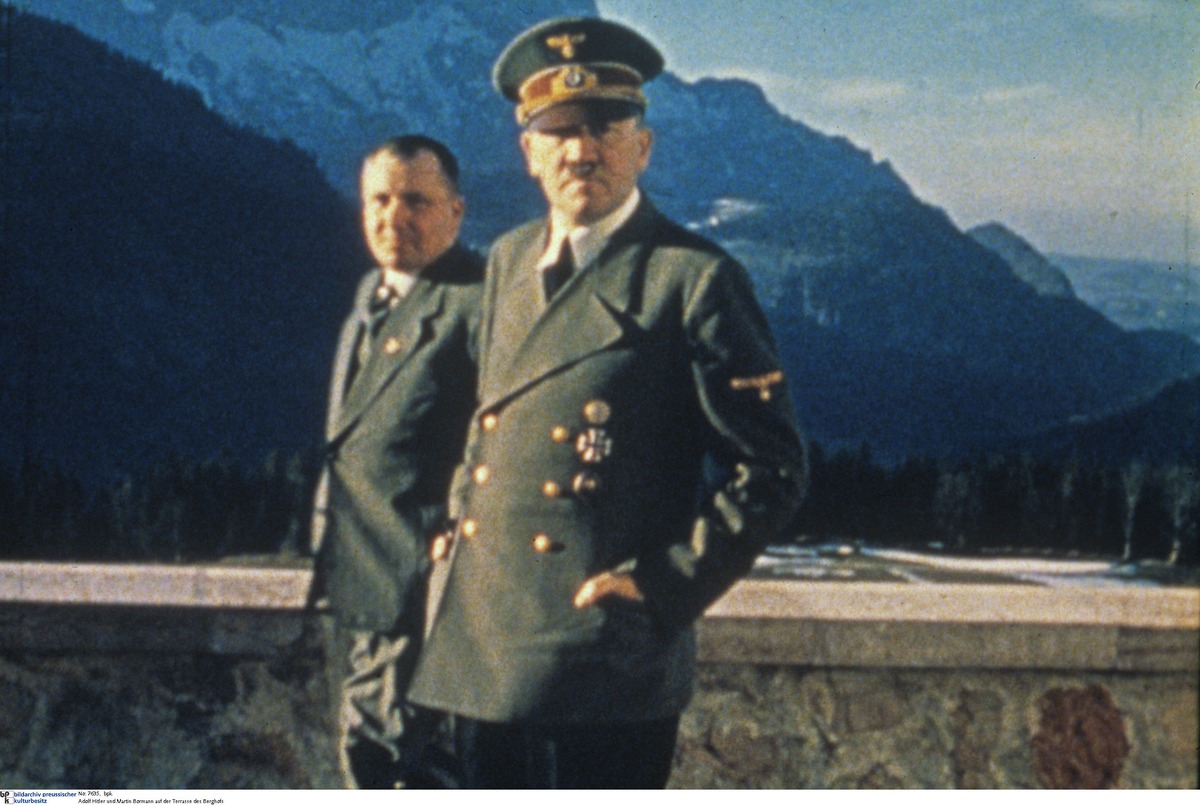Abstract
As head of the Reich Chancellery, Martin Bormann (1900–1945) was one
of the most influential figures in the Nazi regime, because he decided
who had access to the increasingly reclusive Hitler. Bormann had joined
the NSDAP back in 1927 and quickly rose through the ranks. In 1933, he
was appointed Reich Leader and served as chief of staff to Rudolf Heß,
Hitler’s deputy. Bormann made himself indispensable, especially in
financial matters. For example, it was he who had created the “Adolf
Hitler Fund for German Business,” which provided the NSDAP with a
lucrative source of financing. The extent to which Bormann enjoyed
Hitler’s confidence is made clear, for example, by the fact that Hitler
entrusted him with the management of his own private assets, including
the Berghof on the Obersalzberg near Berchtesgaden, which can be seen in
this photo. In May 1941, two days after Heß flew to Glasgow to negotiate
a peace agreement with the British, Bormann succeeded him as head of the
Party Chancellery. From then on, all party business passed through
Bormann, who completely controlled access to Hitler and thus practically
became the second most important man in the government. He was named
“Secretary to the Führer” in 1943, but at that point his position was
actually closer to Hitler’s deputy. To the very end, Bormann ignored the
hopeless military situation, mobilized the People’s Militia
[Volkssturm] as a last-ditch form of
resistance, and remained at Hitler’s side in the “Führerbunker” in
Berlin until the latter committed suicide. Bormann then tried to flee
Berlin and was considered missing for a long time. At the Nuremberg
Trials, he was condemned to death in absentia. In 1973, his body was
accidentally found during excavation work in Berlin and identified. The
autopsy revealed that he and Hitler’s last personal physician, Ludwig
Stumpfegger, had committed suicide on May 2, 1945, by biting into
cyanide capsules.
